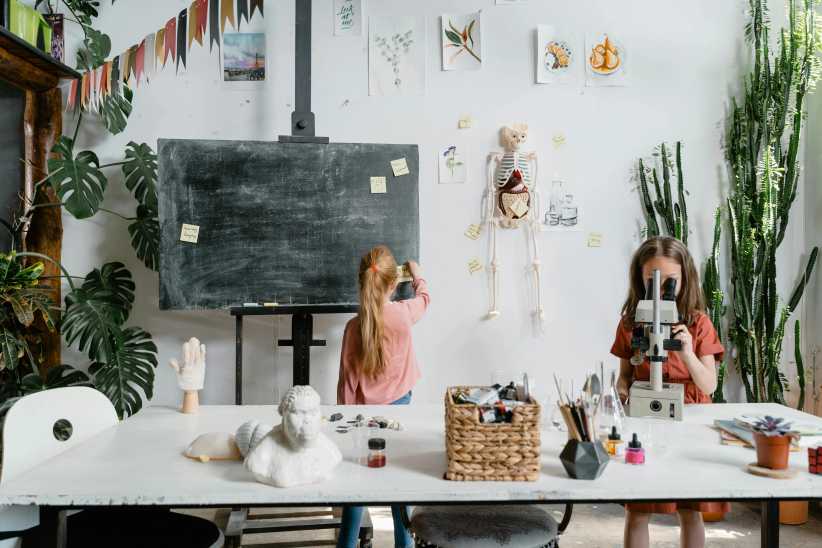Only 23 percent of eighth graders are deemed “proficient” in civics, according to a 2014 report from The Nation’s Report Card assessments—a score that has not changed much since the last assessment in 2010.
Civics classes—once common in grade schools, but rare today—taught students about the government, politics, and democracy, and go hand-in-hand with ethics. If kids do not know how our country operates and the rights and duties as citizens, they may not be able to make informed decisions in the future. This is where a program such as Ethics for Children may be beneficial.
At the New York City Society for Ethical Culture, kids can participate in the Ethics for Children program from September through June every Sunday. The program is geared for children ages 3-12 and there is an emphasis on two principles: Be kind and be fair. No topic is off limits for discussion. Each session begins with the leader going around and asking the children how their week was and if any situation has come up, even though a curriculum was planned out for the day. For example, if a child experienced an unfriendly encounter on the playground, the group would discuss their own experiences and offer solutions.
Ethical Culture is a nontheistic religion centered on ethics to encourage respect for humanity and nature by developing relationships with others, becoming involved in social justice, and taking care of the environment.
Anne Klaeysen, clergy leader at the New York City Society for Ethical Culture, says the mission of this program is to empower children to become more aware and involved in civic engagement. “There is so much about our world that is unethical, whether it is about politics or the kind of greed that people experience,” Klaeysen says. “Our whole mission really is how do we keep families together and how do we empower our children.”
Kids may not always be getting in-depth lessons on civics elsewhere, and so the Ethics for Children program discusses how democracy works, aiming to make sure kids are informed—especially once they are old enough to vote. “We want them to have a deeper understanding of how democracy works and that you can make a difference for good,” Klaeysen says.
One topic that Klaeysen hopes more children will think about is the environment—climate change, in particular. She discussed with kids how a group of kids around the country have filed a lawsuit against President Donald Trump and the federal government for his stance on climate change, citing that they will be the ones who will live longer into a climate-changed future. “It’s a very good example for our children about how young people have taken the issue of climate change directly.”
Though the Ethics for Children classes will not be offered during the summer, the Society hosts a sleepover program in June before the Spring 2017 session ends. Throughout the summer, however, Klaeysen says that kids can continue to think about ethics while they are at day camp or sleep-away camp and consider how they build relationships and interact with other kids and to think about whether they are being both kind and fair. “It’s always the emphasis on the relationship,” Klaeysen says.
For more information, visit the New York City Society for Ethical Culture’s website.
Main image: Kids focus on a different theme every month during the Ethics for Children program.
Courtesy New York City Society for Ethical Culture




















